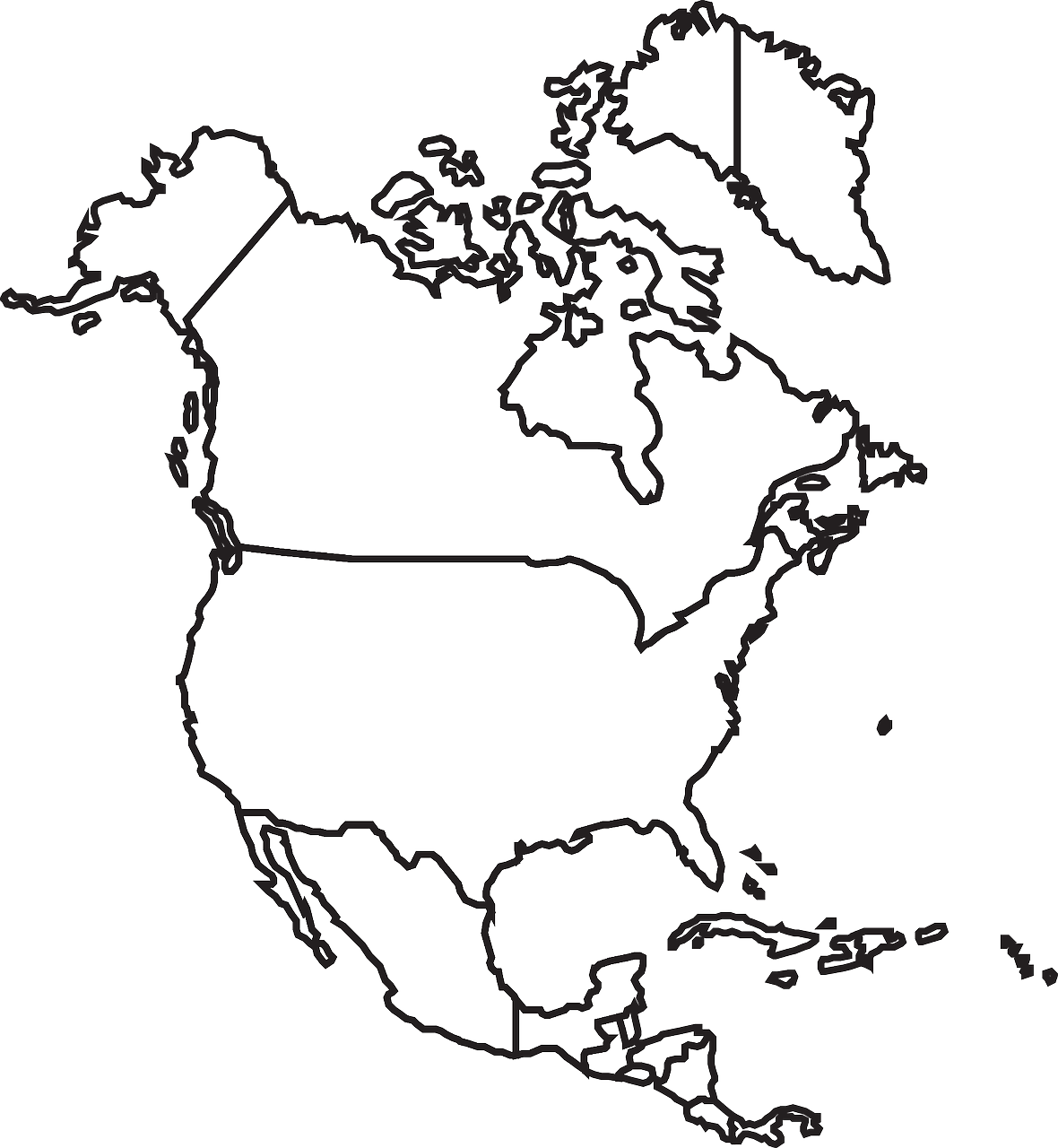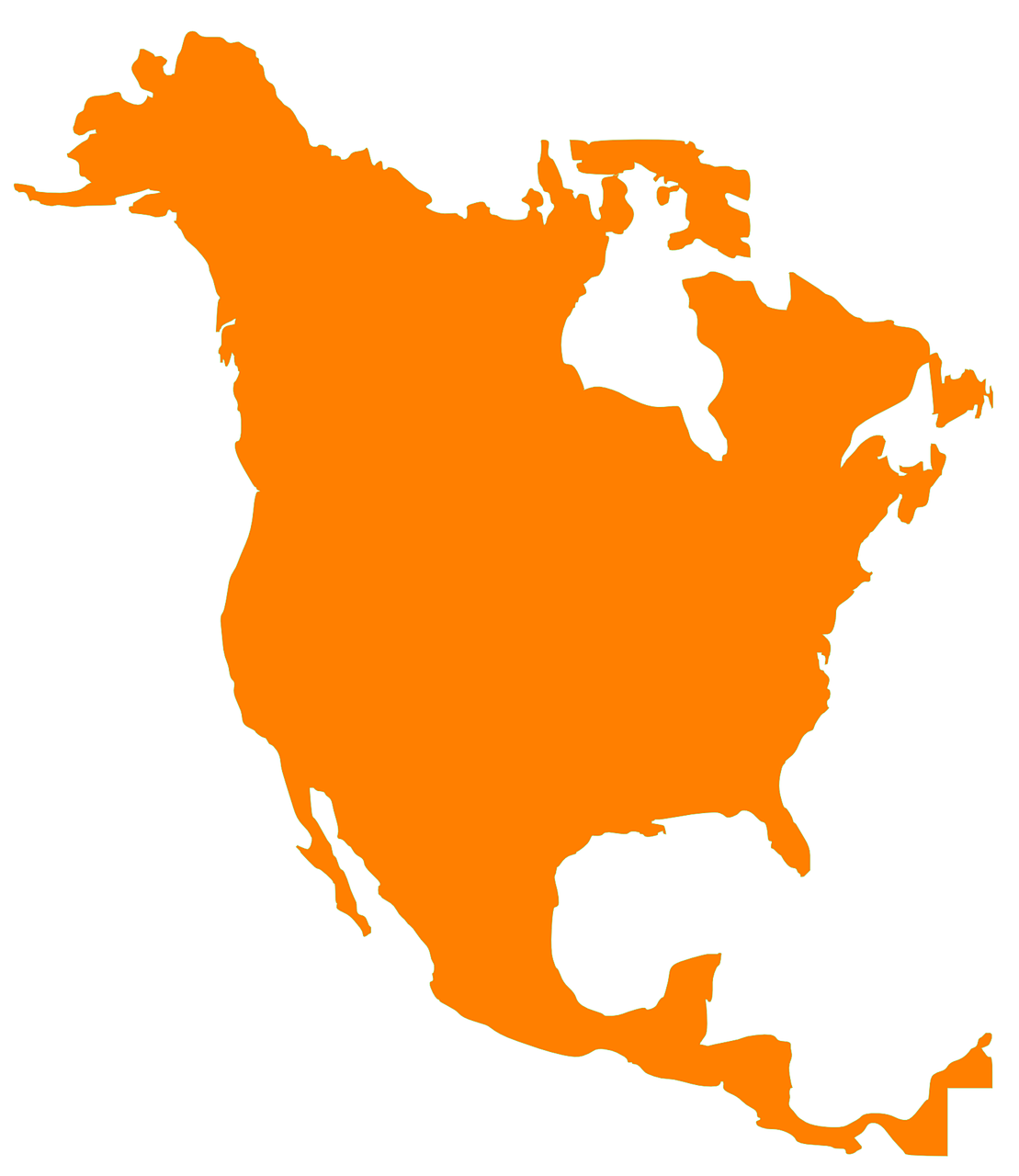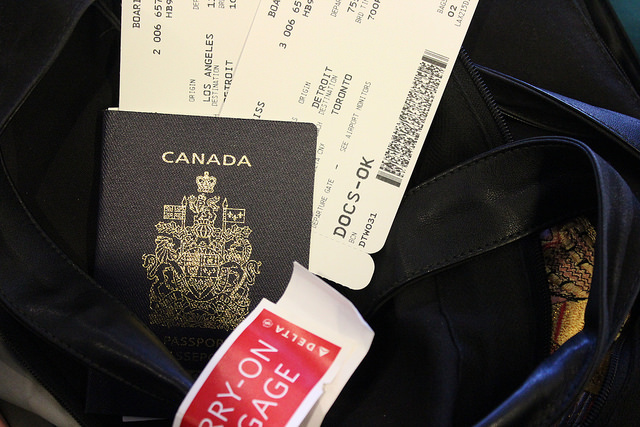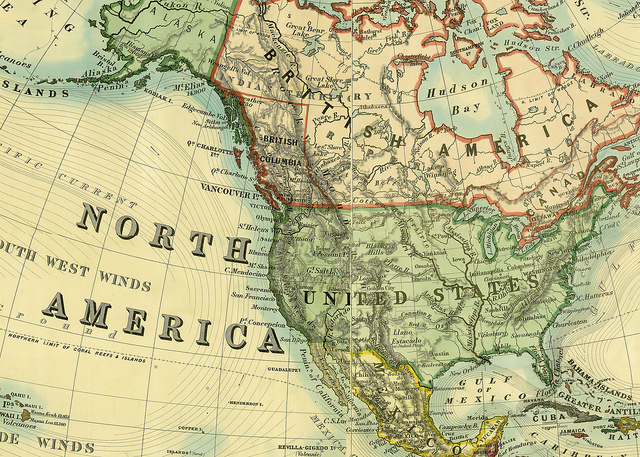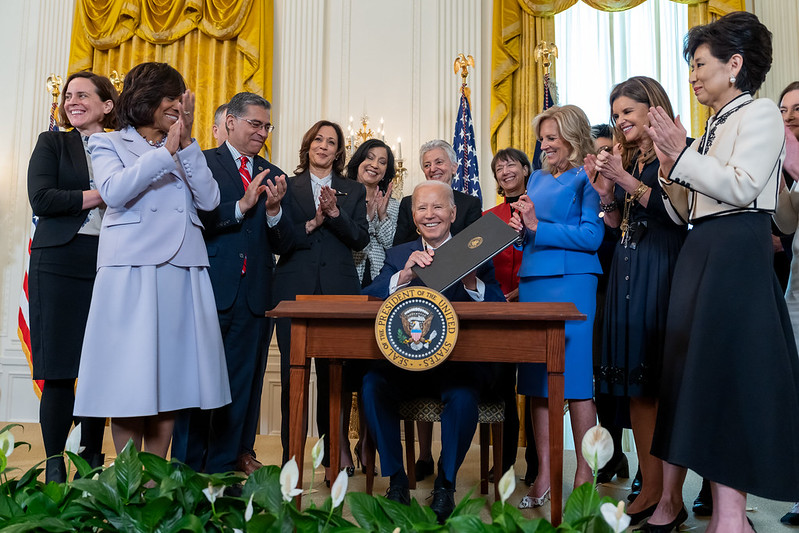 La semana pasada el mundo de inmigración vivió un evento sísmico. El Presidente anunció una acción ejecutiva histórica sobre inmigración que cambiará para siempre las vidas de los cónyuges indocumentados de ciudadanos estadounidenses y agilizará el proceso de visas de trabajo de no inmigrantes para los beneficiarios de DACA y otras personas indocumentadas.
La semana pasada el mundo de inmigración vivió un evento sísmico. El Presidente anunció una acción ejecutiva histórica sobre inmigración que cambiará para siempre las vidas de los cónyuges indocumentados de ciudadanos estadounidenses y agilizará el proceso de visas de trabajo de no inmigrantes para los beneficiarios de DACA y otras personas indocumentadas.
En esta publicación, compartimos con ustedes todo lo que sabemos sobre cómo la orden ejecutiva beneficiará a los graduados universitarios estadounidenses que buscan visas de trabajo.
La acción ejecutiva del presidente Biden se anunció en el duodécimo aniversario del programa de Acción Diferida para los Llegados en la Infancia (DACA), promulgado por primera vez bajo la administración Obama. Además de brindar protección a las personas contra la deportación, la orden brinda alivio a potencialmente miles de beneficiarios de DACA y otros soñadores que han obtenido títulos académicos en los EE. UU. y están buscando oportunidades de empleo en campos relacionados con su curso de estudio.
Al hacerlo, el gobierno permitirá a los soñadores explorar opciones existentes de visas basadas en empleo, como las visas H-1B, TN, L, O, etc.
Detalles Claves
¿Qué hace la Orden Ejecutiva?
- Visas de Trabajo: Los beneficiarios de DACA y otras personas indocumentadas pronto podrían solicitar exenciones aceleradas de inelegibilidad y recibir visas de trabajo temporales, otorgándoles estatus legal para vivir y trabajar en los Estados Unidos sin temor a la deportación.
- Elegibilidad: Para ser elegible para visas de trabajo de no inmigrantes, las personas deben haber obtenido un título en una institución estadounidense de educación superior acreditada en los Estados Unidos y tener una oferta de empleo estadounidense en un campo relacionado con su curso de estudio.
- Camino hacia la residencia: Existe la posibilidad de que estas visas de trabajo temporal creen un camino hacia la residencia permanente a través de opciones de patrocinio basadas en el empleo.
Importancia
Debido al polémico clima político, el Congreso de los Estados Unidos no ha logrado aprobar una reforma migratoria significativa que proporcione un camino legal para que los soñadores permanezcan en los Estados Unidos y contribuyan positivamente a la economía estadounidense, utilizando las habilidades y la educación que obtuvieron aquí en los Estados Unidos.
Por primera vez, el gobierno ordenará al Departamento de Estado (DOS) y al Departamento de Seguridad Nacional (DHS) que emitan una guía aclaratoria que haga posible que los beneficiarios de DACA y otras personas sin estatus legal soliciten exenciones aceleradas de inelegibilidad y visas de trabajo temporales.
 Visa Lawyer Blog
Visa Lawyer Blog




